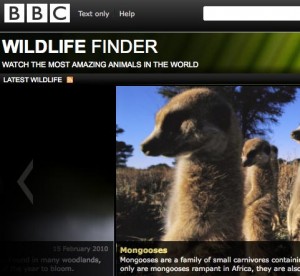Leeds Trinity University College Journalism Week is running from Monday 22 until Friday 26 February. Speakers from across the industry will be at Leeds Trinity to talk about the latest trends in the news media, including Guardian editor Alan Rusbridger; BBC news director Helen Boaden, Sky News reporter Mike McCarthy and ITN political correspondent Chris Ship.
Journalists face a never-ending series of obstacles – and the most disturbing of all is secrecy, according to Sky News journalist Mike McCarthy.
McCarthy, who is Northern Bureau chief for Sky, told students at Leeds Trinity University College: “It is not necessarily the cloak and dagger secrecy of big government, it is often petty obstruction.”
He was speaking at the launch of the university’s Journalism Week, along with digital media expert Bill Thompson and YTV presenter Duncan Wood.
McCarthy spoke about how the media had challenged attempts by magistrates in Bradford to impose a Section 39 order preventing journalists naming nine-year-old stabbing victim Jack Taylor.
A challenge from a reporter covering the case led to the order being lifted and McCarthy said: “It is not easy to get on your feet and challenge the authority of the court . . . but if this had gone through, then what is to stop those magistrates and that solicitor in the future thinking that they can rubber-stamp other banning orders which they do not have the power to impose?”
He also talked about the severe restrictions imposed on reporters covering the inquest into the death of Greater Manchester police officer Ian Terry, with journalists unable to name officers giving evidence and forced to sit behind a huge screen, unable to see any of the proceedings.
Obstacles of a different kind were discussed by digital media expert Bill Thompson, who outlined the massive challenges facing journalists at a time of social and cultural revolution.
He said journalism was perhaps no longer about getting information – because so much was freely available over the internet.
“Perhaps what we do now is to put information in context and make sense of it. The future role of journalism is up for grabs. We are living through a revolution but we are causing it because we are doing the things that are bringing change about,” he told students.
The final speaker on Journalism Week’s opening day was YTV presenter Duncan Wood, who talked about his career working in news and sport and the challenges of working as a GMTV reporter, getting up at 3.30am and traveling all over the North of England. He also spoke about the challenges of interviewing people who really did not want to talk, confessing that his most difficult experience was interviewing Sylvester Stallone’s mother, Jackie, sat on her bed.

